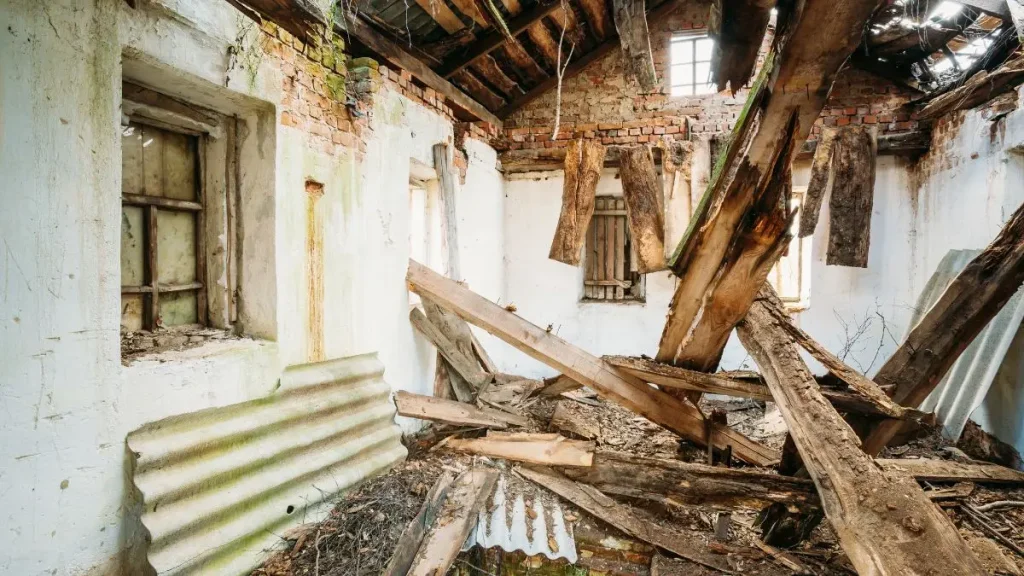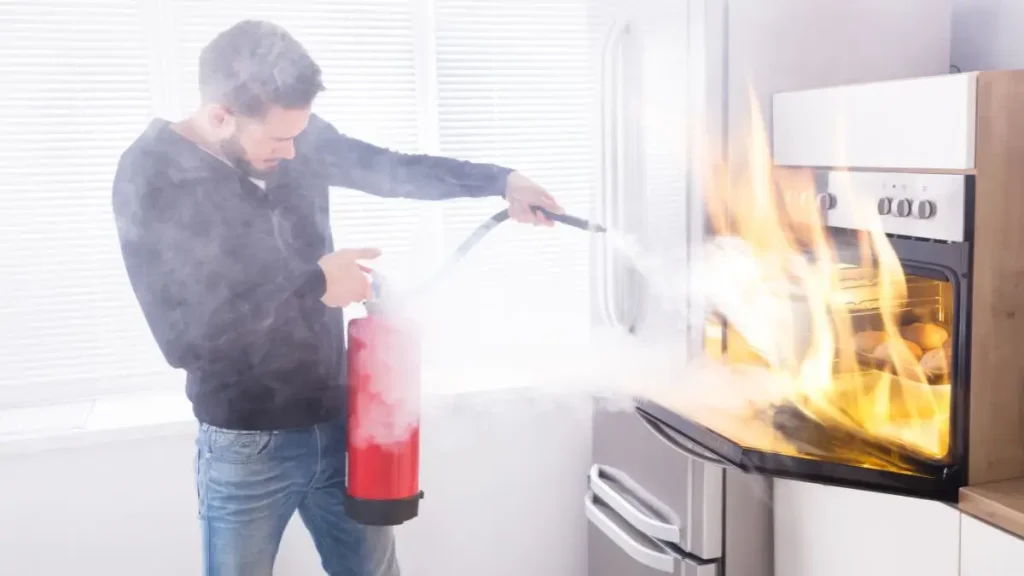Police Investigate Fire That Damaged Home on Chicago’s Northwest Side
If you were anywhere near the 5400 block of West Windsor Avenue around 11 AM on July 1, you might’ve heard it—that sudden, jarring sound that made a few neighbors think something exploded. Moments later, flames were tearing through a vacant home on the block.
According to officials, the fire started in a house that was unoccupied and under renovation. No one was living there. But the flames moved fast—so fast that the neighboring home also got caught in it and was badly damaged. Thankfully, no one was hurt. Everyone inside the second house made it out safely.
Now the police and fire investigators are digging in. Not because this was some routine kitchen fire—it wasn’t. There’s no confirmed cause yet, but when CPD steps in, it usually means something doesn’t add up.
I went through every local report and what stands out isn’t just the fire itself. It’s what’s missing. No mention of whether construction crews were working late. No answers about what caused that boom some people heard. And no clear timeline for when we’ll know more.
So yes, only one home caught fire—but two families felt the impact. And that’s where this story really starts.
Where It Started and What We Know So Far?
Let’s start with what’s confirmed. The fire broke out just after 11 AM in a vacant home that was being renovated. According to a report from CBS News Chicago, firefighters responded to the 5400 block of West Windsor Avenue and found flames tearing through the property.
The house was unoccupied, but the fire didn’t stay contained. Within minutes, it spread to the home right next door, where people were living. Luckily, everyone inside got out safely and no injuries were reported.
What stood out to me in CBS’s coverage is that the cause hasn’t been determined yet. That’s a big deal—because when officials don’t immediately call it “accidental,” it usually means they’re looking deeper.
If you live nearby, this hits close to home. Renovations are common around here. So are older homes with aging wiring. But this wasn’t just a small spark—it was a blaze that gutted two houses in a matter of minutes. That alone raises questions.
How Bad Was the Damage?

From the outside, the two houses still stand. But if you look closer—or you’ve walked past the site—you’ll see what firefighters meant when they said both homes were “badly damaged.”
According to ABC7 Chicago’s report, the fire left the vacant home destroyed, and the flames heavily scorched the neighboring one. Windows were blown out. Roofing was collapsed. Inside? Likely unlivable until major repairs happen.
What’s important here is not just the structural loss—it’s the ripple effect. A family just lost their home through no fault of their own. One neighbor’s renovation turned into another neighbor’s nightmare.
You and I might look at a fire like this and think, “Glad no one got hurt.” And yes, that’s true. But the emotional and financial damage? That lingers. This is more than just ash and soot—it’s a life disruption for two households.
Sadly, this isn’t the first time a neighbor’s home was severely impacted by a fire next door—just recently, a house fire in Montgomery County that left a family of four homeless showed how quickly these disasters can escalate.
Why Police Are Now Involved?
Here’s where it gets interesting—and a little concerning.
Normally, house fires in Chicago are handled by the fire department unless something feels suspicious. In this case, Chicago police are also investigating, and that shifts the tone completely.
You might be wondering, “Why would CPD get involved if no one was hurt?” Good question. And here’s what usually triggers that:
- Possible signs of arson or foul play
- A fire that starts in a vacant property
- Reports of a loud bang or explosion, which neighbors mentioned
- No clear cause after an initial fire inspection
The Chicago Fire Department hasn’t released an official cause yet, but when police step in, it often means they’re looking beyond just electrical faults or contractor error. It could be anything from unauthorized squatters, deliberate ignition, or even insurance fraud.
I’ve covered these kinds of stories for years. And when CPD gets involved, there’s usually more to uncover. We’ll stay on this—because people living nearby deserve to know what actually happened.
Were you nearby that night or did you hear something unusual? Drop a comment below—your experience might help fill in what official reports missed.
What Could Have Caused This Fire?
Let’s be honest—we all want to know what sparked it. When a vacant house catches fire at night, there are only a few likely scenarios. Here’s what could be on the table, based on what I’ve seen in past incidents:
- Faulty wiring during renovation — Sometimes renovations bring in electricians, or tools are left plugged in. If circuits aren’t up to code, sparks can happen.
- Gas leak — Especially if plumbing or HVAC work was underway. That could explain the “boom” people reported.
- Deliberate ignition — Unfortunately, fires in empty buildings aren’t always accidents. Could be someone trespassing. Could be arson.
- Negligence by contractors — Tools left running, flammable materials left unsecured—it happens more than it should.
As of now, no official cause has been confirmed. But as investigators dig in, they’ll be looking at all of these.
Here’s the thing—you might be living next to a vacant or under-construction home too. And if that house isn’t secured or monitored properly, your home could be next in line. Fires spread fast. This one moved from one house to another in seconds.
So even though we don’t have the final report yet, the takeaway is clear: If something feels off on your block—report it, document it, ask questions. It might protect more than just property.
I’ve been tracking similar incidents across different neighborhoods. If you want real-time updates and fire safety tips, I often share quick alerts and verified info through WhatsApp channels locals follow.
Fire Safety Tips Every Chicago Homeowner Should Know

I’ve covered enough fires to tell you this: most people think it won’t happen to them—until it does. Especially in neighborhoods like Jefferson Park or Portage Park, where a lot of the homes are older or under renovation, fire risks go up fast.
So here’s what I always recommend, whether you own, rent, or even just live near a property that’s under construction:
- Check your smoke detectors monthly. Don’t just assume they work. Test them.
- If you’re renovating, get the permits—and vet your contractors. Unlicensed work often skips safety steps.
- Ask neighbors about vacant homes nearby. If a house sits empty and looks shady, report it.
- Keep an eye on extension cords, space heaters, and flammable stuff. Half the time, it’s something small that starts the blaze.
And this one’s simple: if you smell gas, hear popping sounds in the walls, or notice flickering lights—don’t ignore it. Call it in.
We can’t stop every fire, but we can catch red flags early. And honestly? That’s what keeps tragedies from becoming headlines.
In fact, an explosion-related house fire in Philadelphia that killed one and injured two is a tragic example of how dangerous gas leaks can be when unnoticed.
How Often Do House Fires Happen in Chicago?
This isn’t the first fire like this—and it won’t be the last.
Just last year, the Chicago Fire Department responded to over 500 residential fires, according to city data. That includes everything from small kitchen incidents to full-scale blazes like the one on Windsor Avenue.
What’s more worrying? A rising number of those fires started in vacant or under-construction homes. Why? Because they’re easier targets—no one’s watching, and small issues go unnoticed until it’s too late.
If you live in Jefferson Park, Portage Park, or nearby neighborhoods, you should know that this area sees some of the highest calls for residential fires on the Northwest Side. It’s not always publicized, but the numbers are there in CFD logs.
This isn’t to scare you—it’s just a reminder: don’t assume a quiet block means low risk. Fires happen here. You just don’t always hear about them unless something burns to the ground.
We’ve seen this pattern before—a recent row house fire in Northeast D.C. that displaced an entire family highlights just how devastating these events can be, especially when emergency support isn’t immediate.
Final Thoughts
Fires like the one on West Windsor aren’t just stories on the news—they’re sharp reminders of how quickly life can change. One vacant home. One unchecked risk. And suddenly, people are left sorting through rubble.
If you live in Chicago—especially in older neighborhoods—this is your sign to stay alert. Check your own home. Talk to your neighbors. And don’t brush off warning signs.
Because protecting our blocks doesn’t start with sirens. It starts with us.
For more updates on similar fire investigations and neighborhood safety coverage, check out our website for fire reports and real-life incidents here.
Disclaimer: This article is based on publicly available information. Ongoing investigations may reveal new facts not reflected here. For official updates, refer to CPD, CFD, or city-authorized sources.


